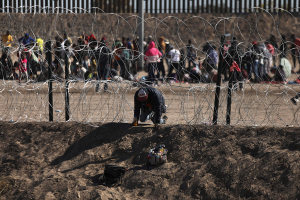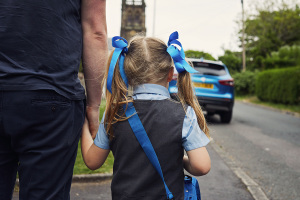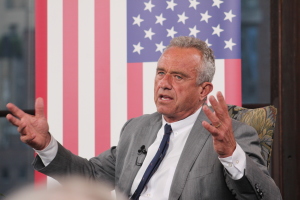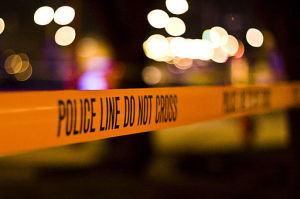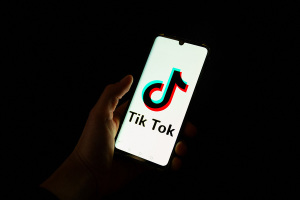Silence in the Face of Escalating Horrors Threatens Religious Faith Itself
Reflecting, as people often do before the New Year upon the friendships that help us through the tough times, we couldn't help but think about who was there for us as a faith community and who let us down. The brutal murder of four rabbis praying in a Jerusalem synagogue, three of them Americans, kept disturbing our thoughts.
First, we were too stunned to react. Next, we grieved. Now, as the shock recedes, we find more cause for worry – about friends and about the state of religious faith itself.
In the days following the attack, major figures and institutions issued public condemnations and condolences. Even some organizations that are quite estranged from world Jewry reacted with humanity. We noted with gratitude that the World Council of Churches, representing 590 million Christians that never, never spoke out in the past when Israel's very existence was threatened, did condemn this attack, as did the Muslim Public Affairs Council.
There was nothing, however, from the mainline Protestant denominations, with the surprising exception of the Presbyterian Church (USA), which recently has had the most strained relationship with the Jewish community. Even taking into account the Pope's strong statement, Jews would have liked some sympathy on the local level. There was none in individual dioceses, except for a beautiful message signed by Boston's Cardinal Sean O'Malley and two other Christian leaders.
What did this tell Jews? It does not mean that those who kept mum necessarily take our suffering lightly, nor that some may have tilted so far towards the Palestinian cause that they couldn't bring themselves to show a modicum of solidarity with Israeli Jews.
It does tell us that much of the vaunted interfaith effort of the last decades hasn't really worked. Rabbi Moshe Leib of Sasov (Ukraine, 18th century) said that he learned from two drunkards what the Bible meant when it asked us to love our fellow as ourselves. "Do you love me?" one asked of the other. "Of course I do!" responded the other emphatically. "So what do I need?" continued the questioner. "How should I know? You haven't told me," responded the other a bit less emphatically. "If you don't know what I need, how can you say you love me?"
Jews needed to hear some sympathetic voices; voices raised in righteous indignation about a barbaric invasion of a house of prayer in the holy city of Jerusalem – and the widespread celebration it spawned in Gaza and the West Bank. The victims were people who grew up and went to school in America. Their wives and children are American. They were connected to innumerable Jewish-American families. One of them was the scion of a family that can only be described as iconic within Jewish circles. Their death under the best of circumstances would have been experienced as an enormous tragedy.
The interfaith response amounted to a bare whisper. Jews learned that they were likely not so loved by those who professed great affection. Interfaith dialogue has been good in generating photo-ops, but failed in creating relationships of meaning.
Then again, we might be entirely wrong. This silence may be even more ominous. Those who let us down have mostly been just as insensitive to horrific attacks on Christian houses of worship. They have reacted to the slaughter of priests, the martyrdom of children, the incarceration of Christian clergy in Iran, and the burning of Christians in Pakistan with similar silence – or belated, calm discourse rather than impassioned cries. The fact is that the persecution of Christians is more severe today than during the first centuries of the Church. (Actually, we didn't say that. It is a quote, verbatim, from the most notable exception to Christian silence – Pope Francis).
Where is the Dr. Martin Luther King who can inspire Americans with fiery, heartfelt rhetoric to scream out against the moral injustice behind the ethnic cleansing of Christians and the toll that Muslim-on-Muslim savagery has taken?
This might be less about the failure of faith and more about the dereliction of duty of those who are supposed to guide the faithful. Have we become too preoccupied with getting people into brick and mortar pews, rather than in planting and nurturing values in people's souls? But what is the point of getting people inside houses of worship, if once inside they cannot detect any moral gumption?
Or maybe this is all about Egocentricity 2.0, that allows people to look at the suffering of others as yet another form of diversion, but nothing more. Do we not realize that young people are watching us, checking the mettle of our religious lives, determining whether it is worth their while to stick around for the sermon?
We began writing this piece looking at a picture of the latest atrocity – the bodies of Kenyan mine workers who were separated by religion, and then executed at point-blank range by al-Shabaab jihadists. Doubtless, there are readers who were sickened by the photo. But as we head into the new year, we must think of what is wrong with our religious communities when we can get far more excited about Black Friday bargains than about the darkness that threatens to envelop us all.
















